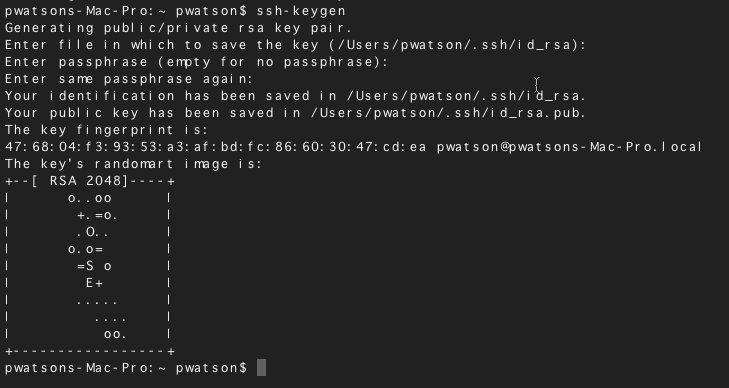Generate Ssh Key Kali Linux
 How do I regenerate OpenSSH sshd server host keys stored in /etc/ssh/ssh_host_* files? Can I safely regenerate ssh host keys using remote ssh session as my existing ssh connections shouldn’t be interrupted on Debian or Ubuntu Linux? How do I regenerate new ssh server keys? How to regenerate new host keys on a Debian or Ubuntu Linux?
How do I regenerate OpenSSH sshd server host keys stored in /etc/ssh/ssh_host_* files? Can I safely regenerate ssh host keys using remote ssh session as my existing ssh connections shouldn’t be interrupted on Debian or Ubuntu Linux? How do I regenerate new ssh server keys? How to regenerate new host keys on a Debian or Ubuntu Linux?Generate Ssh Key Kali Linux Download
[donotprint][/donotprint]To regenerate keys you need to delete old files and reconfigure openssh-server. It is also safe to run following commands over remote ssh based session
/quick-heal-antivirus-pro-2017-product-key-generator.html. Nov 10, 2011 How to Generate A Public/Private SSH Key Linux By Damien – Posted on Nov 10, 2011 Nov 18, 2011 in Linux If you are using SSH frequently to connect to a remote host, one of the way to secure the connection is to use a public/private SSH key so no password is transmitted over the network and it can prevent against brute force attack.
. Your existing session shouldn’t be interrupted.- Jan 06, 2019 How to setup SSH (Key authentication only) with Kali Linux 2019. For each device you must generate a different public & private key, save the private key on the same device you want to ssh from.
- In short, having known ssh key pairs available for the whole planet means anybody could MiTM your ssh connections to Kali by default, not cool. The question is: How do we fix this? In Backtrack we used to call “sshd-generate” to generate OR overwrite the host ssh keys.
Why regenerate new ssh server keys?
Most Linux and Unix distribution create ssh keys for you during the installation of the OpenSSH server package. But it may be useful to be able re-generate new server keys from time to time. For example, when you duplicate VM (KVM or container) which contains an installed ssh package and you need to use different keys from cloned KVM VM guest/machine.
Steps to regenerate OpenSSH host keys on Linux
Let us see all steps
Step 1 – Delete old ssh host keys
Login as the root and type the following command to delete files on your SSHD server:# /bin/rm -v /etc/ssh/ssh_host_*
Sample outputs:
Step 2 – Debian or Ubuntu Linux Regenerate OpenSSH Host Keys
Generate Ssh Key Kali Linux 10
Now create a new set of keys on your SSHD server, enter:# dpkg-reconfigure openssh-server
Sample output:
You just regenerated new ssh server keys. You need to restart ssh server:$ sudo systemctl restart ssh
OR$ /etc/init.d/ssh restart
Step 3 – Update all ssh client(s) known_hosts files
Finally, you need to update ~/.ssh/known_hosts files on client computers, otherwise everyone will see an error message that read as follows:
Either remove host fingerprint or update the file using vi text editor (command must be typed on client machine):$ ssh-keygen -R remote-server-name-here
Now login using the ssh command:$ ssh vivek@server1.cyberciti.biz
Conclusion
You just regenerated OpenSSH Host Keys on a Debian or Ubuntu Linux using the dpkg-reconfigure command. For more info see the man page or this wiki page here:$ man dpkg-reconfigure
$ man sshd
ADVERTISEMENTS